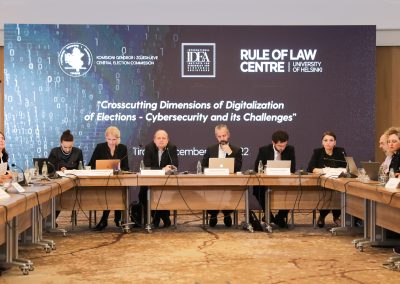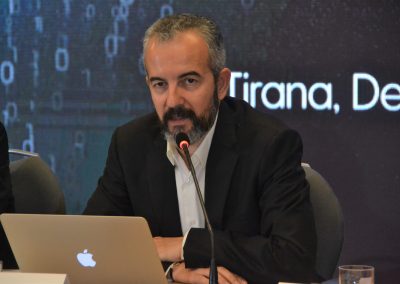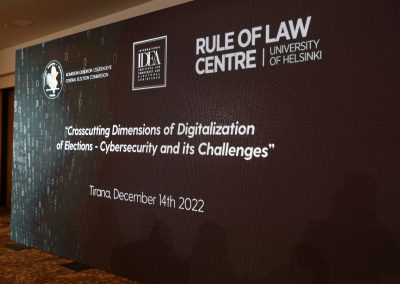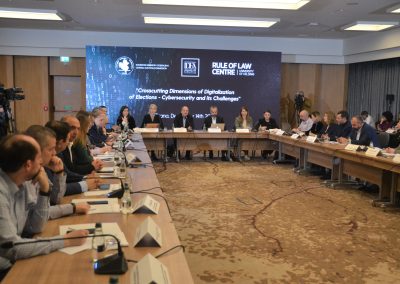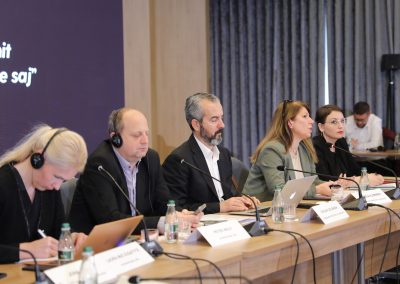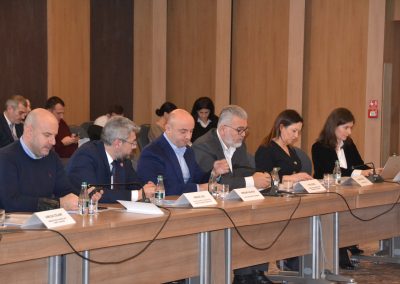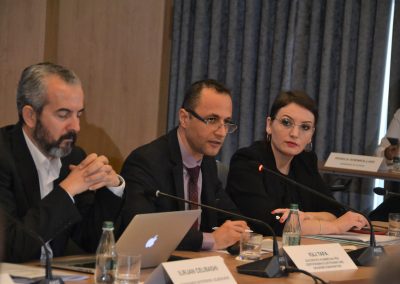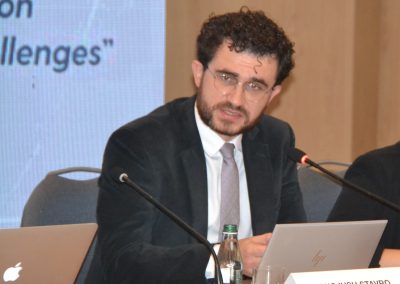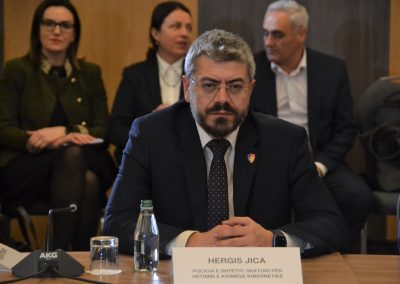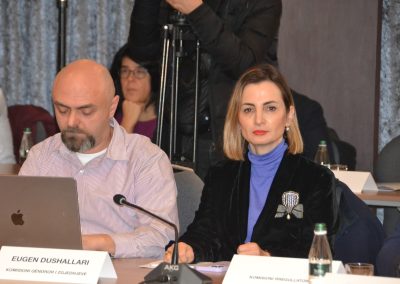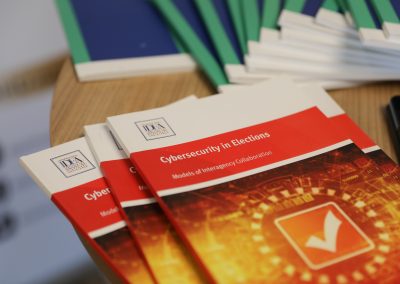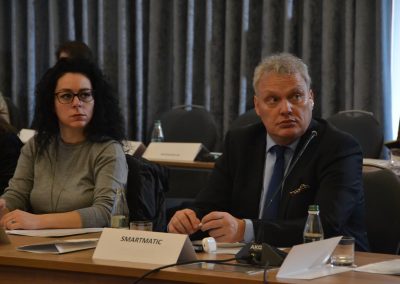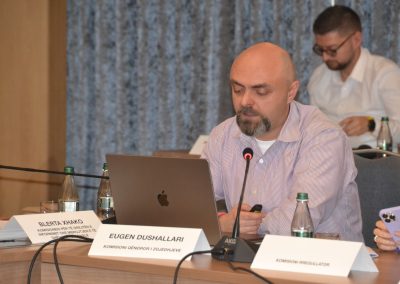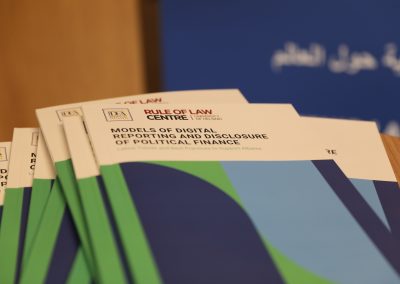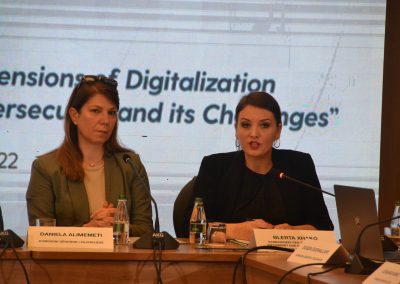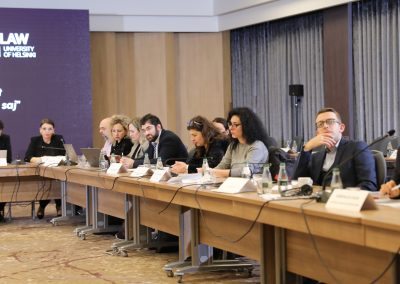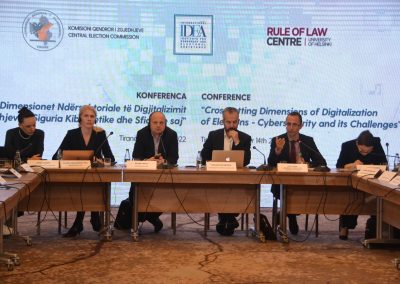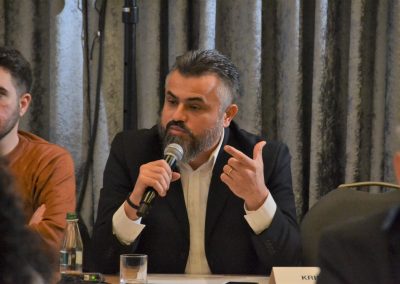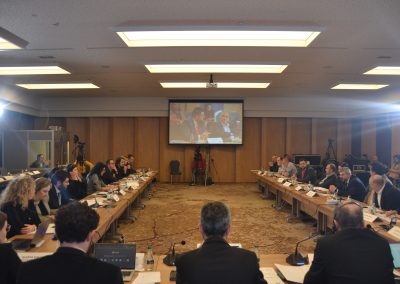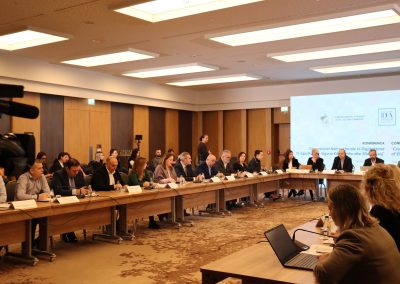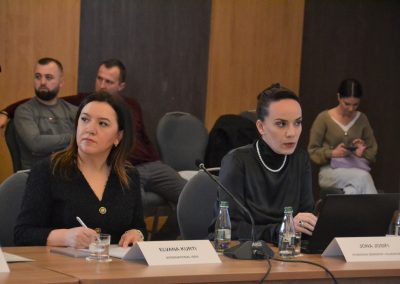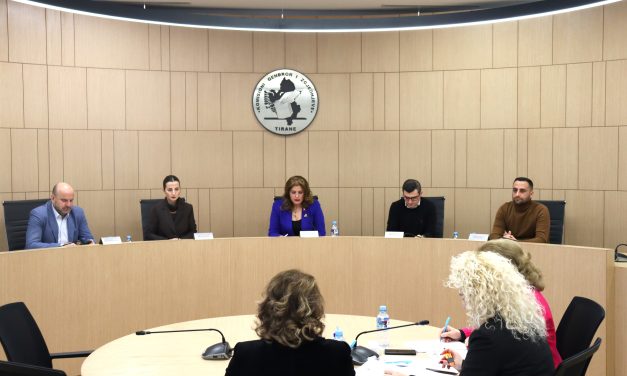The Central Election Commission (CEC), in cooperation with the International Institute for Democracy and Electoral Assistance (International IDEA) and the Center for the Rule of Law of Finland, organized the inter-institutional round table on the cross-sectoral dimensions of digitization of elections. The roundtable “Cross-Sectoral Dimensions of the Digitization of Elections, Cyber Security and Its Challenges” aimed to bring together a wide group of Albanian agencies with specific mandates in the sphere of digitalization, to explore the potential for strengthening of cooperation ahead of 2023 elections.
At the opening of the round table’s proceedings, the State Commissioner of Elections Ilirjan Celibashi emphasized the importance of cyber security at a time when communication and information technology are an important part of election processes, regardless of the type of voting applied.
Celibashi highlighted the commitment of the CEC to digitalize many aspects of the electoral process, such as the financial reporting of political parties, the application of electronic voting and counting in more than one municipality and the success of the implementation of electronic identification is a solid basis for this.
“During the elections and on the elections eve, it would be useful to set up an inter-institutional task force for cyber security”, Celibashi emphasized. Cyber security currently remains one of the biggest electoral challenges, even for consolidated democracies that do not implement any type of electronic voting. The weak points vary from country to country, but they still can result in:
cyber-attacks against election-related infrastructure aimed at breaching the confidentiality, integrity and availability of election technology and data; disinformation campaigns that attempt to undermine the credibility of the electoral administration and democratic institutions; cyber attacks against various electoral actors, political parties, candidates, media and campaigns; and disinformation campaigns designed to influence political debates.
The electoral processes in Albania are not faced so far with significant cyber security threats and digitalization has proven to be a successful instrument to build public trust. However, increased exposure that comes with the increased use of technology in campaigning and election management, as well as the latest incidents in cyber security that affected key government agencies, require greater attention and will.
The CEC aims to increase coordination, communication, information sharing and learning with relevant agencies on issues related to the safe use of technology and the protection of elections and democratic processes from digital threats. This initiative is based on consolidated cooperation on a bilateral level, such as with the Directorate of Civil Status and the Commissioner for the Right to Information and Protection of Personal Data, as well as inter-institutional cooperation on specific topics, such as the alternative of voting from abroad.
